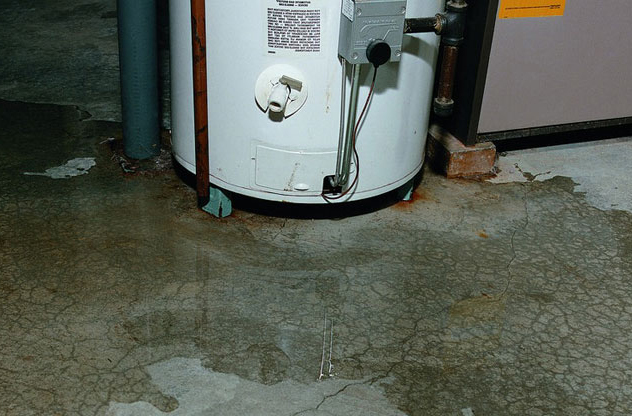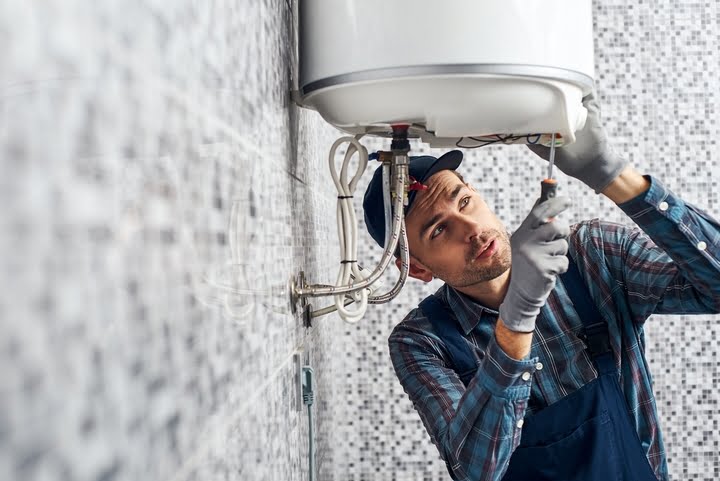Crucial Guidelines for Homeowners Facing Challenges with Malfunctioning Hot Water Systems
Crucial Guidelines for Homeowners Facing Challenges with Malfunctioning Hot Water Systems
Blog Article
On this page below you will find a lot of dependable information pertaining to Maintaining & Draining a Water Heater.

Whether it is situated in the cellar or a different room, damaged water heaters can cause anxiety. Having no hot water supply is also troublesome.
Shut Down Source Of Power
Prior to calling the plumber, closed off a gas water heater by turning the temperature dial. This will certainly avoid electrocution, specifically if there is a leak as water is a conductor. Commonly, the heating element closes off when the water hits a specific temperature.
Cut Off the Cold Water Supply
Cut off the containers tap water supply from the resource. When your container is in great condition, the cool water stops loading up when the container is full. If you can not find it or reach it, you have to turn off that primary water supply line outside your residential property.
Call the Plumber
After doing the first 2 security actions, you must call your plumber to come today to take care of a fractured hot water heater. Nonetheless, keep in mind that your unit will not simply conk out substantially overnight. There are normally indications that your aging water heater has debris accumulation in the interior. Take note of the following:
Rather, as quickly as you detect these indicators, have an expert come to examine your water heating unit thank. Usually, water heating systems have a life-span of concerning 8 to 12 years.
Tidy up Building
After calling the plumber, record damages by taking notes as well as photos so you can declare your property owner's insurance coverage. From there, start the immediate clean-up. Take out any type of important personal belongings to stop further soaking. Then, get rid of any standing water to avoid mold and mildew and mildew development. Utilize that to drain the water if you have a submersible water pump. Otherwise, the conventional bucket technique will certainly also work. Try to wipe out whatever, including walls and walls. If you have an electric fan as well as dehumidifier, keep them going to keep air flowing. This will certainly help discourage mold and mildew growth.
Bear in mind, if you see any kind of concerns with your water heater, call the pros immediately. You can not take this trouble gently since a defective thermostat can raise water temperature to a dangerously high level, leading to unexpected burns. A damaged heating unit pressure safety valve can also trigger a surge. For finest outcomes, obtain a yearly check so your device gets examined, cleaned up, drained pipes, as well as re-filled, assuring ideal efficiency.
Whether it is situated in the cellar or a different space, busted water heaters can trigger tension. Prior to calling the plumber, closed off a gas water heating unit by turning the temperature level dial. After doing the initial 2 safety steps, you need to call your plumber to come right away to repair a burst water heating unit. If you have a completely submersible water pump, use that to drain pipes the water. Bear in mind, if you see any type of concerns with your water heater, call the pros right away.
Is My Water Heater Broken?
The Water Heater is Old
No appliance will last forever. This includes a home’s water heater. During its lifespan, residents are going to face a situation where a new water heater installation will be necessary. The biggest problem with this is that most people are not sure when their water heater expires. Not knowing this can lead to serious risks if the unit begins to act up due to old age.
Most makes and models of water heaters will last between eight and 10 years. While 10 years is the age when water heater replacement is highly recommended, the need to replace the unit may occur before this time or after. If the unit doesn’t show any symptoms of a problem, it is a good idea to replace it at the 10-year mark (from the manufacture date).
Some of the symptoms that indicate a new unit is needed include rusting, leaks, noises, and a failure to heat up the water. Also, note that not all units have a 10-year life expectancy. The main exception to this rule is that a gas unit will last for six to eight years.
Rusty Heater Inlet Valve or Water
While steel is the strongest material on earth, it does have a weakness – rust. If corrosion occurs on a steel surface, it will begin to spread and eat through the steel in certain areas. On water tanks and pipes that are made of steel, rust is a warning sign of an impending leak.
The issue for many is trying to figure out if the rust is coming from the water heater or the pipes that lead to the faucet. If rust is seen, it is a clear indication that water heater service from the professionals is needed.
If rusty water appears out of the faucets in the bathtub or sink, it likely means a rusty water heater. If there is rust near the water inlet or the pressure relief valve, rust has likely developed inside the tank. If tap water appears rusty, it may be an issue with the pipes.
Strange Sounds from the Water Heater
Are there strange sounds coming from the tank? As a water heater gets older, rumbling noises may develop and get louder and louder as the water in the tank heats up. In homes where large amounts of hot water are used, the issue is likely going to be even more obvious when more serious issues arise. If there is a strange or loud noise coming from the unit, it is probably because of sediment buildup. A good way to remedy this problem is by flushing the heater. If this does not work, then a new unit may need to be installed.
Leaks
As a water heater gets closer to the end of its useful life, there is a higher chance there will be water around the tank. If there is water, this usually means leaks are occurring. Based on where the unit is located in the home, a leak may result in serious property damage.
Leaks are usually caused by expansions in the metal tank. The expansions occur as time passes and as the inside body of the tank is exposed to multiple heating cycles per day. When a fracture forms, the gap will be slight enough to hold the water in; however, in more serious situations, this will not be the case. If the tank is idle, the water will not leak but when the metal expands during each heating system, small amounts of water will get through the gap.

I was made aware of that article about Maintaining & Draining a Water Heater from a good friend on another site. In case you liked our page plz remember to share it. Many thanks for taking the time to read it.
Professional service available. Report this page